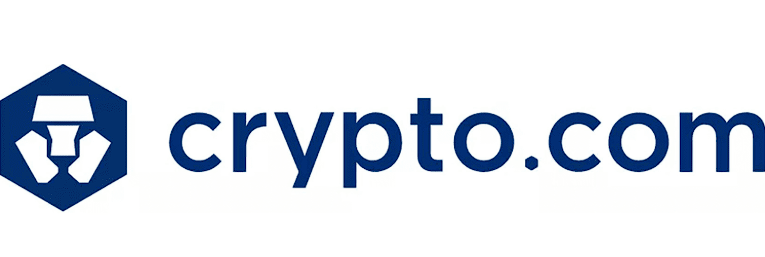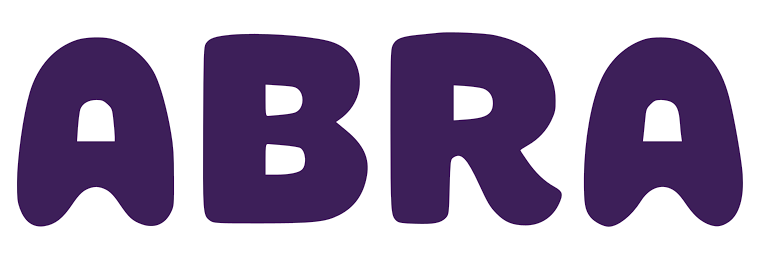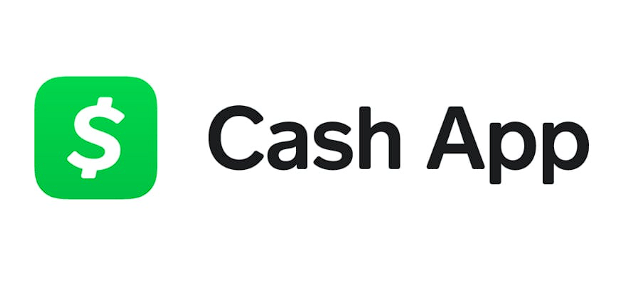Best Crypto Exchanges
Best Crypto Collectors
Best for Mobile
Best for Institutional
Best for Security
Security Runner-Up
Best for Bitcoin Investors
FAQs
Best Crypto Exchanges
Interested in adding crypto to your portfolio? If you already have a diversified portfolio of traditional stocks and bonds — and don’t mind taking on some additional risk — consider investing in trusted and regulated crypto exchanges.
The best cryptocurrency exchanges work similarly to the best stock trading apps, offering competitive fees and resources on digital marketplaces like mobile or desktop. A crypto exchange allows crypto enthusiasts to easily buy, sell, and store popular digital currencies like Bitcoin, altcoins like Ethereum, and traditional investable securities.
Here are the top cryptocurrency exchanges for low fees and human advisor access, as chosen by Invest 70 editors in 2025.
Here are the top cryptocurrency exchanges chosen by editors for 2025:
Binance.US: Best Security Runner-Up
Coinbase: Best for Crypto Collectors
Crypto.com: Best for Mobile Traders
Abra: Best for Institutional Clients
Kraken: Best for Security
Best for Crypto Collectors
Coinbase
$1
0.50% spread for buy/sell transactions; $0.99–$2.99; up to 0.60% for Coinbase Pro and Advanced Trade
As one of the largest US-based, globally recognized cryptocurrency exchanges, Coinbase is a user-friendly digital marketplace with an intuitive and streamlined interface and a library of educational content.
Coinbase’s huge selection of cryptocurrencies and altcoins makes it the best crypto exchange for investors who like diversifying their portfolio with various digital assets, including emerging coins and tokens.
Coinbase offers a separate NFT trading platform and private client services. Coinbase caters to different investors through its Pro, Advanced Trade, and Prime platforms.
A Coinbase One subscription costs $29.99 a month and offers lower trading fees, tax help, and priority customer support. Maker and taker fees on Coinbase Advanced range from 0% to 0.6%.
Coinbase does allow crypto swapping using DEC through the Coinbase Wallet.
Coinbase has a low account minimum to get started and offers digital wallet storage for cryptocurrencies and other digital assets. Coinbase’s beta NFT trading platform has no transaction fees for creators and collectors.
Coinbase has a rating of 4.7/5 on the Apple Store and a 4.6/5 on Google Play.
Pros of Coinbase
- Access to hundreds of cryptocurrencies
- Multiple advanced trading platforms are offered and hot wallet storage
- Private client services
- NFT trading platform
Cons of Coinbase
- High trading and transaction fees
- Pay more for lower balances
Best for Mobile Trader
Crypto.com
$1
Maker fees 0.0750% – 0% and taker fees are 0.0750% – 0.0500%; 0% credit/debit card purchases for first 30 days of opening account
Crypto.com is a popular global crypto trading platform known for its user-friendly mobile trading app, DeFi wallet storage, and reward opportunities.
In early 2025, Crypto.com launched its US-based institutional-grade exchange, providing US-based investors with access to advanced trading technology, including staking, thematic Crypto Baskets with pre-specified token ratios, and over 5,000 US fee-free stocks and ETFs (including fractional shares)
Crypto.com supports 400+ cryptocurrencies, including bitcoin, ethereum, and dogecoin. The platform accepts 20+ kinds of fiat money. The Crypto.com mobile app provides Visa Card perks, reward-earning opportunities, crypto-tracking features, and price alerts.
In addition, you can make crypto-crypto swaps through Crypto.com’s DeFi wallet, which is now called Crypto.com Onchain.
Crypto.com has a rating of 4.6/5 on the Apple Store and a 4.5/5 on Google Play.
Pros of Crypto.com
- Supports 400+ cryptocurrencies
- Mobile app with advanced crypto trading features and reward opportunities
- DeFi wallet storage
- Staking for a wide range of coins, including ether, solana, and cronos
Cons of Crypto.com
- Not available in New York
- High fees on debit and credit card transactions
Best for Institutional and Private Clients
Abra is a global crypto exchange serving institutions and private clients (including family offices and hedge funds) in 150+ countries.
Abra private accounts have no penalty, withdrawal, or origination fees and charge trades using an open and fixed-term fee and rate pricing model. There is a $50,000 minimum deposit.
It offers comprehensive cryptocurrency investment solutions and wealth management services, such as OTC trading, lending services, and sovereign wealth funds.
Private clients can meet with a dedicated account manager for tailored crypto trading solutions, competitive fees, and 24/7 expert guidance from a team of professionals.
Institutional clients can use Abra Prime to gain cryptocurrency exposure, access trading pairs, and build custom crypto and digital asset programs.
Abra’s OTC services give institutional clients access to interest-earning accounts, loans, and one-on-one account support.
Abra has a rating of 4.7/5 on the Apple Store and a 3.4/5 on Google Play.
Pros of Abra
- Institutional and private client crypto trading services
- OTC trading strategies
- Treasury services
Cons of Abra
- Abra’s retail trading is no longer available in the US
Best for Institutional and Private Clients
Kraken is one of the oldest and most well-established global crypto exchanges with industry-leading educational resources and security features.
Kraken is one of the safest crypto exchanges for investors looking to trade 200+ cryptocurrencies. It has a comprehensive cybersecurity and security management approach with proof of reserves, legal compliance, cold wallet storage, SSL encryption, and regular security testing.
The exchange offers users access to high-priority 24/7 live chat and email support. Karken also offers users a library of additional security resources, such as info on Kraken’s PGP key and how to set up a master key.
Crypto exchanges aren’t generally regarded as the safest or most transparent platform, so industry-leading crypto trading platforms like Kraken stand out quite a bit.
The platform also offers a handful of fiat currencies with options for retail and institutional investors. Kraken provides investors with access to margin and spot trading. You can borrow up to 5x your account with a margin for increased liquidity and higher trading volumes. NFTs have no gas fees.
Kraken has a rating of 4.7/5 on the Apple Store and a 4.1/5 on Google Play.
Pros of Kraken
- Educational resources and tutorials available
- Offers institutional services like OTC trading and one-on-one consultations
- Range of advanced trading tools
Cons of Kraken
- Kraken’s futures trading platform isn’t available to US traders
- Only institutional and high-net-worth clients can use the exchange’s consultation and account management services
Best Security Runner-Up
Binance.US
$0
20% to 35% service fee for cryptocurrencies and staking rewards
Binance.US is another top crypto exchange, often compared to Kraken, as one of the safest crypto exchanges for active blockchain traders.
However, it is only the runner-up since the exchange’s parent company BAM Trading Services has been charged with violations for unethical activity (see our review for further info).
Many crypto exchanges have a history of fraudulent and unethical trading practices, so it is not uncommon (even for large and reputable exchanges) to have recent government actions filed against them. Thus, investors should trade cautiously and thoroughly research each platform before joining.
Some security protocols used by Binance.US include data privacy controls, proactive security monitoring, completing its SOC 2 exam, and a self-service account lock feature.
Nevertheless, Binance.US is one of the crypto exchanges with the lowest fees, offering accessible trading features and tools for retail and institutional investors.
Binance.US also offers perks like cold-wallet storage, staking, and institutional services.
Binance.US has a rating of 4.2/5 on the Apple Store and a 3.2/5 on Google Play.
Pros of Binance.US
- Free bitcoin trades are available and low trading fees
- Institutional services available
Cons of Binance.US
- Does not offer crypto futures or margin trading.
Best for Bitcoin Investors
Cash App Investing
Offers commission-free trading of stock and ETFs
$0 ($1 for access to fractional shares)
0%
Cash App Investing is one of the best crypto exchanges in the US due to its user-friendly and accessible interface catered to beginners. Additionally, it offers commission-free trades of more than 1,800 stocks and ETFs.
When you link your Cash App balance to the mobile app, investors can easily buy, sell, send, and receive Bitcoin. You can even designate a specific portion of your paycheck to be converted into bitcoin when you set up direct deposits.
Send bitcoin to your friends fee-free with Cash App’s Lightning Network features. Cash App also provides an in-app custodial wallet to store your Bitcoin assets. You can start trading with as little as $1.
Crypto.com has a rating of 4.8/5 on Google Play.
Pros of Cash App
- No minimum to open an account
- Online banking and investing on the same platform
- Fractional shares available
Cons of Cash App
- Cash App Investing only offers bitcoin
How to Choose the Best Crypto Exchange
The best crypto exchanges offer competitive pricing for cryptocurrencies beyond Bitcoin and Ethereum and prioritize user experiences with an intuitive interface, clear platform navigation, and access to a mobile app.
Trustworthy crypto trading platforms are licensed and compliant with industry regulations.
When deciding how to choose a crypto exchange, consider whether the exchange aligns with your investing preferences. This includes factors such as your risk tolerance, time horizon, preferred trading features, and investment goals.
Additionally, ensure the exchange you pick matches your preferred trading style.
For example, if you’re a hands-off trader, you should pick a platform equipped with automated trading features and tools. Most crypto exchanges are designed with active traders in mind. If you’re looking for passive crypto trading, your options are limited.
How Do Cryptocurrency Exchanges Work?
Crypto exchanges work a lot like online brokerages. They give you a platform where you can place different types of orders to buy, sell or trade cryptocurrencies with other users.
There are two main types of exchanges: centralized and decentralized.
- Centralized Crypto Exchanges: These are similar to broker-dealers—except for crypto—and they’ll manage everything for you, from security to processing trades.
- Decentralized Crypto Exchanges: A DEX, on the other hand, isn’t centralized. It’s intended to be a peer-to-peer crypto marketplace that allows users to swap their crypto without an intermediary.
How Do I Choose the Right Crypto Exchange?
Before you choose a crypto exchange, there are several factors to consider. However, the right crypto exchange for you will ultimately depend on your trading preferences, level of crypto knowledge and unique goals.
“If you’re just starting out, choose a platform that feels simple,” says JP Richardson, a crypto wallet provider who has written code used by bitcoin and cryptocurrency software. “But also take time to understand why control of your digital wealth matters. Security, ease of use and support should all be part of your decision.”
Consider factors like these:
Features and usability. Consider the different order types available, as well as additional features like staking, accessing other awards and earning interest on cash balances. Additionally, try to get a sense of the trading platform(s) offered, and whether it suits your level of trading know-how.
Security. Before you entrust your assets to a crypto exchange, ensure that security is a priority for the company.
To protect your assets, you’ll want to do some research on past hacks and how the firm has remedied those security breaches. You’ll also want to check that measures like multifactor authentication, data encryption and confirmation requests for withdrawals are in place. Alternatively, you can store your crypto in one of the best crypto wallets, separate from the one the exchange offers.
Supported coins. Some exchanges offer more limited selections of coins than others. If there are specific currencies that you hope to trade, confirm that those coins are supported.
Fees. Whether it’s trading fees, deposit and withdrawal fees or conversion fees, you’re going to have to pay to use a crypto exchange. You’ll want to make sure the fees charged by a specific exchange are reasonable, especially if you plan to trade often.
Availability. It’s common for even the largest crypto exchanges to have location-based restrictions. Before you set your mind to a specific exchange, confirm that it’s available to residents of your state. If the exchange is available in your state, certain features like staking may not be allowed.
Customer service. If you run into issues with a trade or during the deposit or withdrawal process, you’ll want to be able to easily reach a customer service representative who can help. Find out what methods of customer support an exchange offers and their hours of operation.
Customer reviews. Even if an exchange seems perfect on paper—or on its website—it’s worth reading up on existing customers’ actual experiences. It’s always a good idea to look up customer ratings and reviews to see if there are ongoing technical, security or customer service-related issues.
How Do I Open a Crypto Exchange Account?
To open a crypto exchange account, visit the exchange’s website or download its app.
Each crypto exchange has its own unique registration process. With some, you may be able to make an account and buy and sell small amounts of crypto without verifying your identity or submitting much sensitive information.
But as the industry has evolved, the U.S. government has introduced certain Know Your Customer regulations to prevent money laundering and fraud.
In general, you’ll need to provide:
- Name
- Date of birth
- Mailing address
- Social Security number
You may also have to verify your identity by submitting a photo or scan of a government-issued ID.






